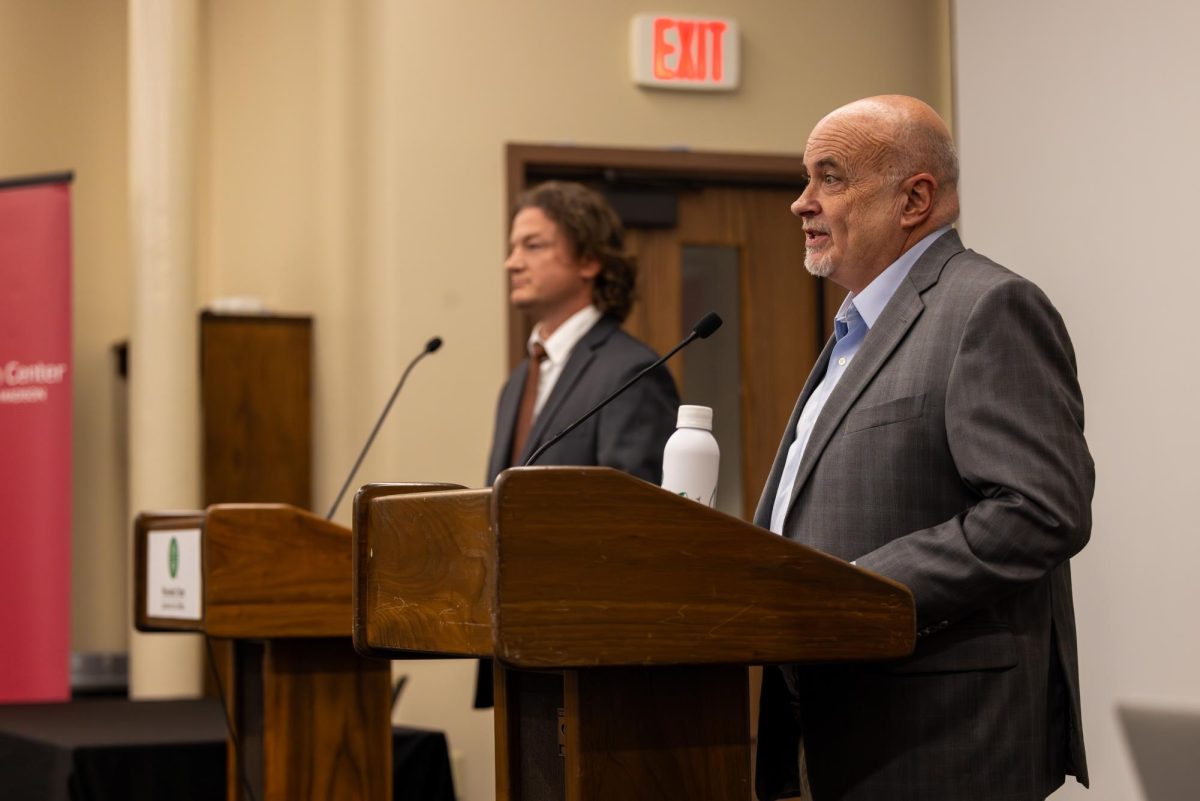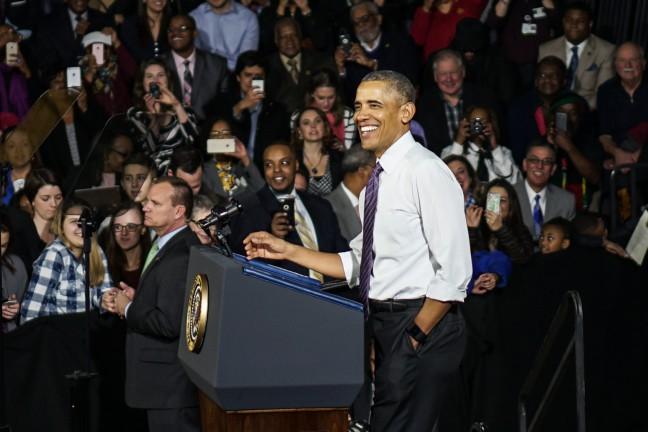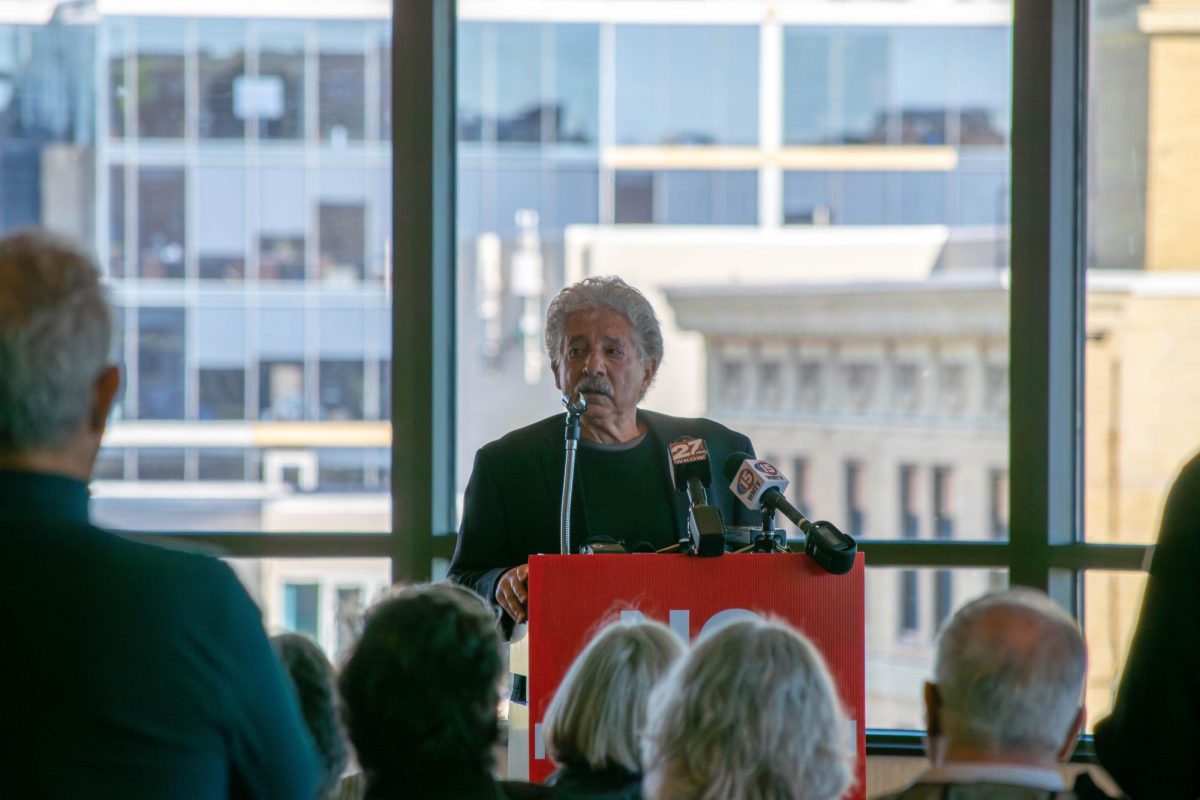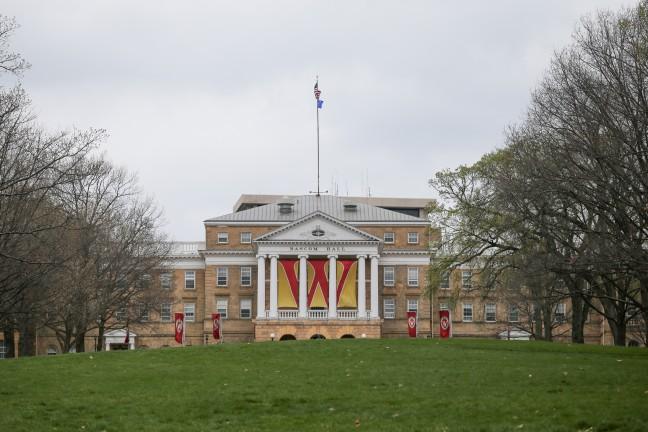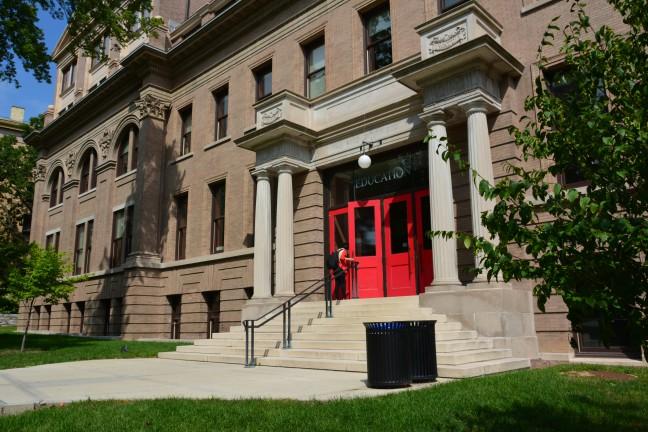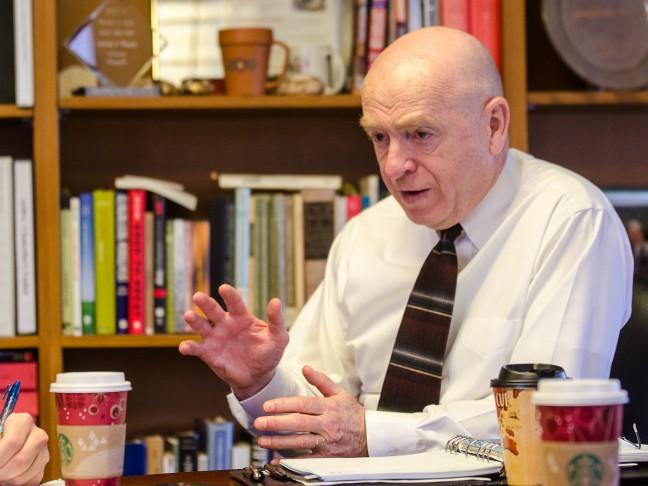
A celebrated religious scholar from Princeton University and best-selling author spoke to an overflowing University of Wisconsin crowd Thursday night in a lecture that centered on the cultural effect of the biblical book of Revelation.
Elaine Pagels, author of “The Gnostic Gospels” and the recent New York Times best-seller “Beyond Belief: The Secret Gospel of Thomas,” addressed UW as part of the school’s Year of Humanities Chancellor’s Lecture series.
Pagels focused largely on the book’s historical and religious origins as well as its vast impact on the world of art.
“It is the strangest book of the Bible,” Pagels said. “It consists of visions, dreams and nightmares, [and is] astonishingly influential.”
Throughout the lecture, Pagels presented slides of artwork inspired by Revelation’s images and themes. Pagels cited such literature as Milton’s “Paradise Lost” and the song lyrics from “The Battle Hymn of the Republic” as just a few examples of the book’s widespread influence.
In examining Revelations, Pagels has aimed at taking a scholarly, rather than a religious, approach to John’s vision of the end times.
She asserted from a sociological perspective the book of Revelation’s author’s colorful references to the destruction of tyranny and worldly kingdoms were actually aimed at the former Roman Empire, under whose rule John was living when he wrote the book.
“John wants you to know [Revelation] is about real events,” she said. “What he creates is anti-Roman propaganda.”
Pagels also said biblical passages referring to catastrophic images such as “blazing mountains” may have been allusions to actual natural disasters like the eruption of Mt. Vesuvius.
She noted interpretations of the book’s figurative prophecies have frequently been believed to have been manifested in events such as the Black Plague in Europe or the appearances of Napoleon or Adolf Hitler.
The audience responded favorably to Pagels’ presentation, giving a lengthy round of applause at her conclusion.
UW graduate student Nick Jacobson was one of the attendees lured by the author’s notoriety.
“It just seemed interesting,” he said. “[‘The Gnostic Gospels’] was on a list from The Modern Library’s 100 Best Novels and that was a real draw.”
When Pagels opened the floor to questions at the end of her presentation, she continued to avoid offering a religious interpretation of the book and several times deflected questions that dealt with non-historical factors.
Regarding Pagels’ insistence on an academic reading and the lecture’s traditional, narrative approach to the book’s origins, attendees like Jacobson were somewhat disappointed.
“[Growing up] with a religious background, I was surprised because I expected something new, something more for her to add [to the debate] especially with how highly she was recommended,” Jacobson said.
Chancellor Biddy Martin gave an introductory statement to Pagels’ lecture on behalf of the university. She said the role of the Year in Humanities Chancellor’s Lecture series is to bring these types of philosophical and academic debates to the forefront of public discussion.
“The purpose is to ensure that the humanities are visible and vibrant across the campus and the community,” she said.


